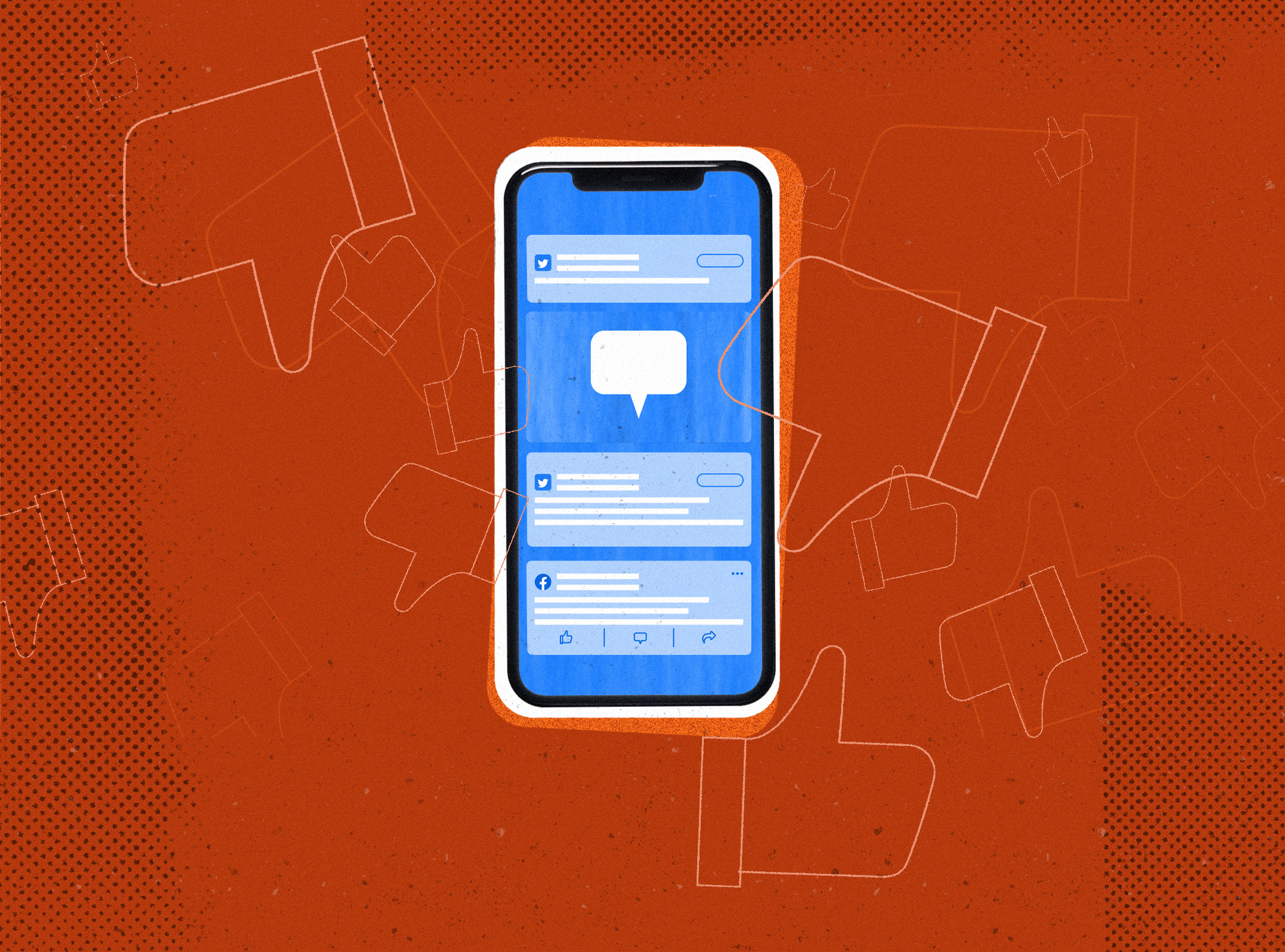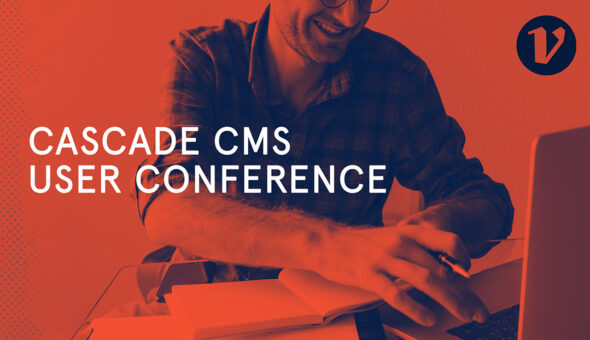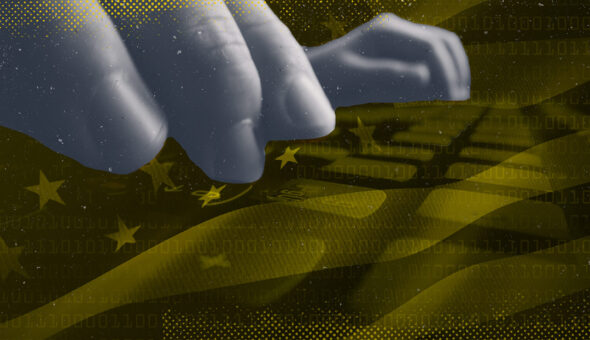1. Our hugs are the best hugs. When our personal social media accounts engage with each other (and I am being deliberate by saying “accounts;” not the actual two of us, because that happens in person) — they do so in what I’d like to call a “hug machine.” We employ gifs and emojis to, essentially, wrap each other in a co-dependently homogenous embrace.
via GIPHY
2. Our village is strong. When we share our pain points, the voices of good come to our aid to share … unconditionally validating gifs. We really are totally like Katniss Everdeen when she does that three-finger salute. And, like, we share that gif almost as much as the Michael Scott one.
3. Our echo chamber is safe. When we share examples of our work, we get positive feedback that caresses our egos. We retweet and share and give each other all the credit we wish we’d get from (perhaps) our actual supervisors, or faculty or — let’s be honest — our very own superegos. For the most part, this feedback is not contested. That’s because it’s positive.
So, what happens when the feedback is negative? What happens when we share work our teams produced that we’re proud of, and it is met with harsh criticism?
In a sea of ego, what happens when we get some id and it forces our superego to … for shame … make us feel guilt, anger, or just plain anxiety that we’re being called out in a public forum for work we thought we were sending into the warm embrace of the homogenous hug machine?
If you think this is the part where I share advice, it isn’t. I have none.
What I do have though, are a few observations about a particular reaction to one of my social media posts (I am purposefully omitting the platform’s name, to maintain anonymity) that forced me to look so far inward and dissect my own intentions, my own ego, my own ability to filter out toxicity, to wonder what toxicity even means when it is affixed to @ signs, that I might have bruised a kidney.
I wasn’t prepared to get personal, or to feel so driven to craft the perfect response. I wasn’t prepared to get called out. Are any of us, really?
Here are some assumptions you might have right now about how our rules of engagement as writer and reader may have changed as you continue reading:
1. This could be a ploy to get you to connect with me. Whoa. Meta.
2. I could be attempting to get you to find this post and give it the three-finger JLaw salute to pull me back into the homogeneous hug machine.
3. This is getting weird. Because I’m getting personal.
The truth is: We don’t tell the truth
Why is it universally understood – but never spoken – that we’ll always like each other’s work (even when we all know it isn’t feasible that we will always like the work)? As many of us have written recently in IHE, The Chronicle and even here in Volt, a lot of what we’re doing isn’t all that different anyway.
Using our personal social media accounts, we project images of our best selves through the pinhole aperture of the same camera obscura. We know the names and the thought leaders. We “at you” @nikkisunstrum and @lizgross144 on Twitter hoping for a like or response. We all want LinkedIn to pick up our posts in LinkedIn Pulse. And by “we all,” I mean every single person who uses those hashtags. They aren’t just for findability. They’re as much about hugs as they are about personal branding or institutional bragging.
But back to my social media post. I shared an ad my institution placed in a prominent print publication. When I saw a comment criticizing the image I shared, I panicked. First, the individual wasn’t a known entity in our echo chamber. Second, the comment didn’t just call me out; it accused the work I shared of being unoriginal and self-serving. Third, there was no immediate gratification from the echo chamber.
It was 6:30 a.m. The hug bunch was asleep.
This was, perhaps, my most egotistical, non-crisis since Facebook launched its relationship status feature, and it was catastrophic. I told my son, “Daddy can’t eat breakfast right now. He’s working.”
He had to eat his oatmeal with mommy while daddy paced self-centered circles around the house.
Here’s what I did: I texted a few colleagues to see what they thought. Was the post out-of-line? I mean, did the individual even read the ad? My mind raced. I read and reread the comment as my blood pressure rose. I refreshed my phone for a solid five minutes waiting for the cavalry to come to my aid. I tweeted a passive-aggressive question about how I should respond. Of course, no one replied immediately — so I deleted it. I crafted a response. And waited to post it. The word “troll” came up.
I am not proud of any of this.
This wasn’t work anymore. It was personal. I took it to heart. Because the truth is, I did post the ad because I was proud of it. It was self-serving. And the truth is, as part of the campaign I’m working on, I have been posting some of the creative before it launches to gauge feedback. At least that is what I told myself and my colleagues: that it was a decent way to test the waters just in case the creative doesn’t resonate.
But that is a lie, at least partially. Because if the presumption is that the voices of opposition will actually respond with negative feedback that will be incorporated into the work, I always knew — deep down — that they wouldn’t. I knew I’d get hugs and likes and claps and shares. At least as comments. Usually, the constructive feedback comes in DMs, right?
I wasn’t prepared to get personal, or to feel so driven to craft the perfect response. I wasn’t prepared to get called out.
Are any of us, really?
The comment begat other comments. A few from me, too. All were impeccably saccharine. I messaged some of the commenters to thank them. Does it matter what they wrote? Not really. Because even the hugs came as projections of our best selves.
After the hand grenade of absolute, unabashed reality was thrown, the echo chamber walled us in again.
It was like Oz going Technicolor, and then going back to monochrome; reverting from beam-splitting points of light back to the camera obscura.
But I cannot go back now. I want to shake the hand of the individual who commented for jarring me awake — for having the courage to throw a stone; for digging in against the opposition. One thing is clear: The commenter had an agenda. But don’t we all? It was real. It was brazen. It was a strong opinion from someone outside the usual hug bubble, with a different perspective.
It might be the first time social media has actually mimicked real life for me.
Because that’s exactly the kind of opposition our team got before we launched the work in the first place. We focus-grouped and presented creative for months. We took our stones and they made the work better. But it didn’t bruise our delicate egos, because we expect opposition in real life. We expect it to get personal. We don’t work in an unconditionally loving hug machine. We work in an environment where mutual respect is assumed, but also one where poking holes and taking criticism from all angles isn’t just respected; it’s required.
Still, I’m not going to stop sharing work of which I am proud. I am not going to stop using the hashtags either. I’m going to keep engaging.
But I see you. I hear you. And I’d like to think I am better off because you disagreed.
I’d love to talk in real life, too.







